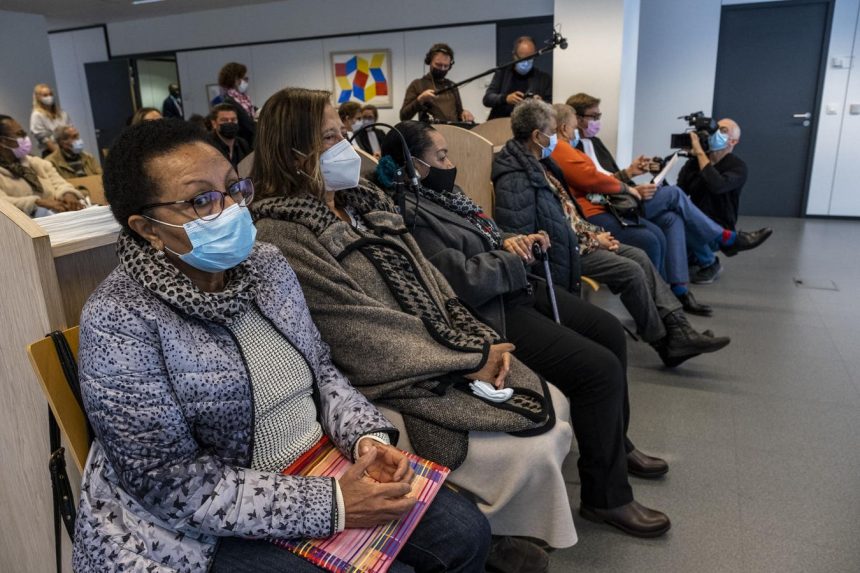The December 2024 ruling by a Belgian court, ordering reparations for five mixed-race women forcibly removed from their families during the colonial era, marks a significant stride towards acknowledging and addressing the harrowing legacy of Belgium’s colonial past in the Congo. This landmark decision not only validates the suffering endured by these women but also exposes the systematic, racially motivated policies implemented by the Belgian state, which the court deemed to constitute crimes against humanity. The women, born between 1948 and 1952, were victims of a state-sanctioned program that targeted mixed-race children, tearing them from their mothers and placing them in orphanages, often run by the Church. This practice, driven by racial segregation and the refusal of many white fathers to acknowledge their children, robbed these individuals of their identities, families, and cultural heritage. The court’s recognition of these actions as crimes against humanity underscores the severity and systematic nature of the abuses.
The 2024 judgment follows a series of previous acknowledgments of wrongdoing, albeit without concrete actions towards reparations. In 2019, the Belgian government issued a formal apology for the forced separation of children in the Congo, Burundi, and Rwanda. This apology, while a step in the right direction, lacked tangible measures to address the lasting harm inflicted upon the victims. The Catholic Church, complicit in the institutionalization of these children, also issued an apology in 2017. However, these apologies did not translate into any form of compensation or support for the survivors, leaving a void in the pursuit of justice. This inaction prompted the five women – Monique Bitu Bingi, Léa Tavares Mujinga, Noëlle Verbeken, Simone Ngalula, and Marie-José Loshi – to initiate legal proceedings in 2021, seeking compensation for the trauma they experienced.
Their initial legal challenge was dismissed due to the statute of limitations, a legal hurdle often encountered in cases related to historical injustices. However, in a victory for the plaintiffs and a testament to their perseverance, the Brussels Court of Appeal overturned this decision in 2024. The court recognized that the state’s actions amounted to crimes against humanity, thereby removing the statute of limitations and paving the way for the women to finally receive some measure of redress for their suffering. This pivotal ruling established a crucial precedent, potentially opening avenues for other victims to pursue justice and accountability for similar atrocities.
The court’s decision to award compensation for the moral damage suffered underscores the profound and lasting impact of the forced separations. The women’s testimony, particularly Léa Tavares Mujinga’s poignant account of being “uprooted” and “cut off” from her people, resonated with the court, highlighting the devastating consequences of the state’s actions on their identities, childhoods, and human rights. The court recognized the loss of connection to their mothers, the disruption of their cultural upbringing, and the damage to their sense of self. The awarded compensation, while primarily symbolic, acknowledges the gravity of the harm inflicted and represents a step towards healing and reconciliation. Each woman sought €50,000 (USD 52,000), a sum that represents not only financial compensation but also a recognition of the immeasurable loss they endured.
The impact of this case extends beyond the five women involved. It serves as a beacon of hope for other victims and survivors of Belgium’s colonial policies, potentially encouraging them to come forward and seek recognition of their experiences. The case also represents a broader movement towards accountability for historical injustices, demonstrating that even decades later, legal avenues can be pursued to address past wrongs and provide a measure of closure for those affected. This legal victory serves as a powerful reminder of the importance of perseverance in the pursuit of justice and the potential for legal systems to rectify historical injustices. The case sets a precedent for future claims and contributes to a more comprehensive understanding of the long-term effects of colonial practices.
Beyond the individual cases of forced child separation, Belgium is grappling with the wider legacy of its colonial exploitation, particularly in the context of looted cultural artifacts. In 2022, the Belgian parliament passed legislation establishing a framework for the restitution and return of Congolese property seized during the colonial period. This move, prompted by growing international pressure for former colonial powers to address their exploitative past, signifies a significant step towards restorative justice. Belgian Prime Minister Alexander De Croo presented an inventory of approximately 84,000 Congolese artifacts, opening the possibility for their eventual repatriation. Though the law is yet to be fully implemented, it signals an important shift in the Belgian government’s approach to its colonial past, moving beyond mere apologies to concrete actions towards repatriation and reconciliation. The combined effect of the court’s ruling and the legislative efforts towards restitution demonstrates a growing recognition of the need for comprehensive redress for the multifaceted harms inflicted during the colonial era.



